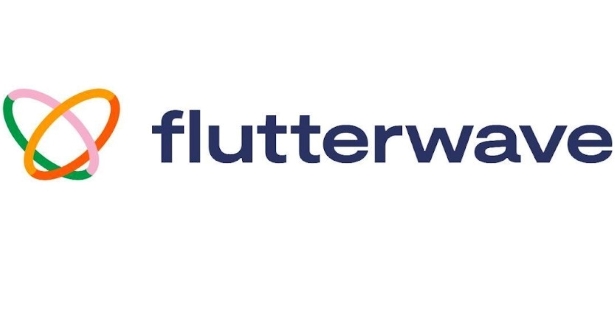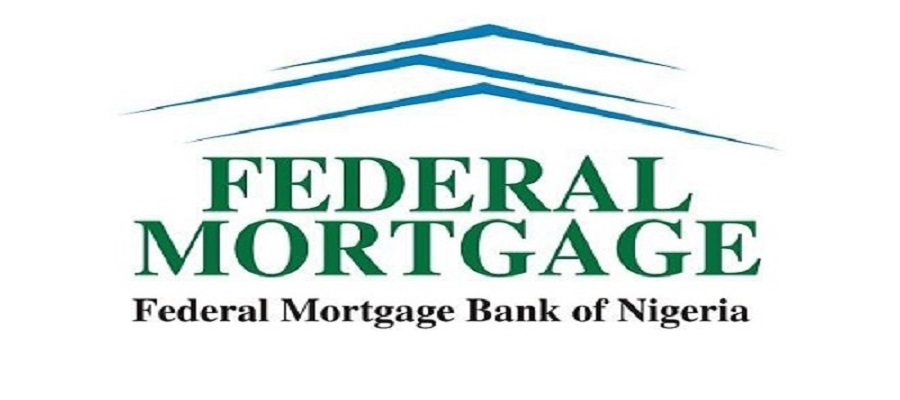E-Financial
Flutterwave Re-brands, Goes Beyond Payments

Flutterwave, the leading technology company, has unveiled a significant re-brand and identity at Flutterwave 3.0, a virtual event held last Friday.

Following the announcement of a $250M Series D funding last week, Flutterwave is now rolling out its new and reimagined identity, to affirm its commitment to creating endless possibilities for all, through technology, as well as introducing new products and services that take the technology leader beyond payments.
During the Flutterwave 3.0 event, streamed across Youtube, the brand launched a series of products, including;
– A Fintech as a Service (FaaS) solution which helps startups of all sizes quickly become Fintech companies using Flutterwave’s pre-built API and solutions.
– Capital, a technology platform for businesses & consumers to access Buy Now Pay Later (BNPL) & Merchant lending from regulated and certified credit providers.
– Grow, a B2B product that helps entrepreneurs easily incorporate their businesses globally.
– Checkout, a new checkout experience that is 5x faster, reducing drop-off by 60%.
– Card issuing, technology platform to enable businesses to issue both Mastercard virtual and physical debit/prepaid cards to their customers in partnership with Mastercard. These solutions remain subject to regulatory approval.
Additional improvements to existing products include; a new powerful dashboard, Barter v4, and an AI-powered compliance process. The Flutterwave visual rebrand comes with 6 new primary colours which depict creativity, motivation, passion, ease, robustness and eagerness.
Flutterwave launched in 2016, initially building innovative financial infrastructure to enable payments for banks and institutions, before expanding into checkouts and gateways for businesses of all sizes.
Having invested in and built out a suite of products and services targeted at both consumers and businesses, Flutterwave has gone on to serve over 900,000 merchants, process over 200M transactions worth over USD $16B to date, across 34 countries in Africa, which has led to the company becoming one of Africa’s earliest unicorns in March 2021.
Friday’s event sees Flutterwave affirm its commitment to explore more areas of growth for businesses, startups and individuals. The move comes after a significant diversification of products in 2021, whereby the company announced the acquisition of Disha, a creator platform where creatives can receive money from across the world for their craft.
In the same year, Flutterwave went on to introduce Market, an extension of its e-commerce solution, Store to improve visibility and by extension, revenue for small businesses. Alongside global Afrobeats superstar Wizkid, in December Flutterwave launched a remittance solution, Send, to help anyone in the world send and receive money.
“We’re growing and for us, payments have become a means to an end.” Founder and CEO, Olugbenga GB Agboola, said, “Every part of our lives includes some form of transaction. Beyond powering those transactions, we want to also create those transactions.
“We want to help event organizers seamlessly register and sell out their events, we want to help artists receive money for their craft, we want to help entrepreneurs incorporate their businesses, we want to help startups build financial technology products easily and we want to create endless possibilities for all through technology.
“Our new identity is a system that recognises how far we’ve come in our mission. It gives us space to include all of our dreams and aspirations for businesses and customers. It gives us the freedom to do and be more. We’re excited for this new chapter in our growth.”
Yewande Akomolafe-Kalu, head of Branding and Storytelling, said, “We always wanted to simplify payments for endless possibilities for our customers. Over time, we’ve come to see that the story of our impact goes well beyond payments.
“We understand how important it is to embrace the full story of our journey and make it a part of our identity. We’re excited to create endless possibilities through technology.”
Ted Oladele, VP of Design, Flutterwave, said, “During our first ever rebrand meeting, we asked ourselves; how much does our brand communicate who we are?
“We discovered we were confining ourselves to a single story of our brand when we were much bigger than that. This new brand is freedom. It enables us to create solutions that help people, whether payments or not. It recognises our growth and actively asks us to do more.”
E-Financial
Linkage Assurance Mobile app to Deepen Digital Insurance Access in Nigeria

As part of its strategic commitment to enhance customer experience and expand digital access to insurance services, Linkage Assurance Plc has launched its new mobile application, now available for download on both iOS and Android platforms.

The Linkage Assurance App offers Nigerians a seamless, secure, and convenient way to purchase, verify, and manage motor insurance policies anytime, anywhere. With just a few taps, users can obtain genuine motor insurance certificates, renew existing policies, and access instant customer support—all from their mobile devices.
Speaking at the official launch in Lagos, Daniel Braie, managing director/CEO of Linkage Assurance Plc described the launch as a major milestone in the company’s ongoing digital transformation journey.
“Our goal is to make insurance simple, transparent, and accessible to everyone. The Linkage Assurance App demonstrates our commitment to customer-centric innovation and our vision of deepening insurance penetration through technology,” the MD/CEO stated.
The App features secure payment integration, a real-time policy management dashboard, and 24/7 customer assistance, ensuring that policyholders enjoy a smooth, convenient, and trustworthy digital experience.
While the current version focuses on motor insurance, the company noted that plans are already underway to expand the App’s functionality to include other product lines—such as general, retail, and corporate insurance solutions—in future updates.
Industry observers note that the rollout of the Linkage Assurance App highlights the growing importance of digital innovation in Nigeria’s insurance sector, as firms adapt to evolving customer expectations and the need for speed, convenience, and accessibility in financial services.
The company emphasized that the App will not only enhance convenience for existing customers but also help attract new users, particularly among younger, tech-savvy Nigerians who prefer mobile-enabled financial solutions.
Consumers the Company noted can now download the Linkage Assurance App from the Google Play Store or Apple App Store to experience a smarter and more convenient way to stay insured.
Linkage Assurance Plc is one of Nigeria’s leading insurance companies, providing innovative risk management and financial protection solutions across motor, fire, marine, engineering, agriculture, general business, oil & gas, and other specialized lines.
The company remains committed to delivering excellent customer service, digital innovation, and sustainable value creation for all stakeholders. AM Best, a global credit rating agency, has assigned Linkage Assurance Plc a Financial Strength Rating of B+ (Good) and a Long-Term Issuer Credit Rating.
E-Financial
SERAP Demands Answers over Missing N3 Trillion in CBN Account

Socio-Economic Rights and Accountability Project (SERAP) has urged Mr. Olayemi Cardoso, governor of the Central Bank of Nigeria (CBN), “to promptly account for and explain the whereabouts of the missing or diverted N3 trillion of public funds, as documented in the recently published 2022 annual report by the Auditor-General of the Federation.”

SERAP said the grave allegations are documented in the latest annual report published by the Auditor-General on 9 September 2025.
SERAP urged him to “identify those responsible for the missing or diverted public funds and hand them over to the Independent Corrupt Practices and Other Related Offences Commission (ICPC) and the Economic and Financial Crimes Commission (EFCC) for further investigation and prosecution.”
SERAP also urged him “to ensure the full recovery and return of any missing public funds to the treasury without further delay.”
In the letter dated 15 November 2025 and signed by Kolawole Oluwadare, SERAP, deputy director the organisation said: “These grim allegations by the Auditor-General suggest grave violations of the public trust, the provisions of the Nigerian Constitution 1999 [as amended], the CBN Act, and anticorruption standards.”
SERAP said, “These grave violations also reflect a failure of CBN accountability more generally and are directly linked to the institution’s persistent failure to comply with its Act and to uphold the principles of transparency and accountability.”
According to SERAP, “These violations have seriously undermined the ability of the CBN to effectively discharge its statutory functions and the public trust and confidence in the bank. The CBN ought to be committed to transparency and accountability in its operations.”
The letter, read in part: “According to the Auditor-General, the CBN in 2022 failed to remit over N1 trillion [N1,445,593,400,000.00] of ‘the Federal Government’s portion of operating surplus’ into the Consolidated Revenue Fund (CRF) account.”
“The Auditor-General fears that the money may have been ‘diverted.’ He wants the money recovered and remitted to the treasury.”
“The CBN in 2022 failed to recover over N629 billion [N629,040,000,000.00] paid to ‘unknown beneficiaries’ as part of the Anchor Borrowers’ Programme, a programme ‘meant to support farmers to ensure sustainable food production in the country.’”
“But ‘the numbers of beneficiaries who collected the money are unknown.’ The CBN has also failed to ‘recover the money.’ The Auditor-General fears ‘the money may have been diverted’, which could have ‘contributed to the difficulty in sustaining food security in the Nation.’”
“He wants the money recovered and remitted to the treasury.”
“The CBN has also failed to recover over N784 billion [N784,410,108,864.47] ‘being 32 unpaid, overdue loans and interventions disbursed by the Bank between 2018 and May 2022.’”
“The Auditor-General said ‘there was no evidence that the Bank was doing enough to recover the loans/interventions, which ought to have been paid.’ He wants the money recovered and remitted to the treasury.”
“The CBN in 2022 also spent over N125 billion [N125,374,000,000.00] ‘on questionable intervention activities.’ The CBN claimed it spent the money ‘on intervention activities in connection with national security, the federal government, state securities, armed forces and to build the capacity of the financial sector’.”
“But the Auditor-General is concerned that the money may have been spent ‘without the approval of the National Assembly.’ There was also no document to ‘support the expenditure.’”
“The ‘expenditure also may not have been in the public interest and consistent with the objectives of the CBN in section 2 of the CBN Act.’ The Auditor-General fears the money may have been ‘diverted.’ He wants the money recovered and remitted to the treasury.”
“The CBN in 2022 also ‘unjustifiably’ spent over N1 billion [N1,792,769,160.00] to buy 43 operational vehicles for the Nigeria Immigration Service (NIS). The ‘spending is unjustified because there is no connection with buying operational vehicles for the NIS and the objectives of the CBN as stated in section 2 of the CBN Act.”
“The NIS also ‘failed to provide any evidence to show that the vehicles were actually supplied and delivered.’ There ‘were also no procurement and payment records or documents.’ The Auditor-General fears the money may have been ‘diverted’. He wants the money recovered and remitted to the treasury.”
“The CBN also awarded 43 contracts for over N189 billion [N189,50,066,756.73] but ‘the contractors deliberately delayed completion of these contracts’ by seeking ‘extension of the completion period.’”
“The contractors then ‘requested for variation of contracts due to extension of completion period.’ Following the request, the CBN paid the contractors over N9 billion [N9,270,849,691.61] ‘irregular variation of contract price.’”
“There ‘were no relevant procurement documents such as contract files, procurement records, and payment vouchers’ for the payment. The Auditor-General fears ‘the money may have been diverted’ and the projects may have been abandoned.’ He wants the money recovered and remitted to the treasury.”
“The Katsina state branch of the CBN also failed to recover over N90 million [N90,163,610.00] being ‘outstanding loans and interventions disbursed to 33 small and medium enterprises during Covid 19 in 2020.’”
“The Auditor-General fears ‘the money may have been ‘diverted’ or ‘mismanaged’. He wants the money recovered and remitted to the treasury.”
“We would be grateful if the recommended measures are taken within 7 days of the receipt and/or publication of this letter. If we have not heard from you by then, SERAP shall take all appropriate legal actions to compel you and the CBN to comply with our request in the public interest.”
“Paragraph 708 of the Financial Regulations 2009 provides that, ‘on no account should payment be made for services not yet performed or for goods not yet supplied.’”
“Section 15(5) of the Nigerian Constitution requires public institutions to abolish all corrupt practices and abuse of power.” Section 13 of the Constitution imposes clear responsibility on the CBN to conform to, observe and apply the provisions of Chapter 2 of the constitution.”
“Paragraph 3112(ii) of the Financial Regulations 2009 provides: ‘Where a public officer fails to account for government revenue, such officer shall be surcharged for the full amount involved and such officer shall be handed over to either the EFCC or the ICPC.’”
“Nigerians have the right to know the whereabouts of the public funds. Taking the recommended measures would advance the right of Nigerians to restitution, compensation and guarantee of non-repetition.”
“The Nigerian Constitution, Freedom of Information Act, and the country’s anti-corruption and human rights obligations rest on the principle that citizens should have access to information regarding their public institutions’ activities.”
E-Financial
SEC Partners FMBN Partner on Non-Interest Mortgage Framework

Securities and Exchange Commission (SEC) and the Federal Mortgage Bank of Nigeria (FMBN) have announced a strategic collaboration to develop a robust Non-Interest Mortgage (NIM) ecosystem.

This significant move is part of efforts to address the nation’s massive housing deficit and deepen financial inclusion.
At a high-level meeting in Abuja of Friday, both parties agreed to create and regulate viable Sharia-compliant financing structures that will enable millions of Nigerians, particularly those excluded from conventional interest-based loans, to access affordable homeownership.
With Nigeria’s housing deficit estimated to be over 28 million units, the initiative is being hailed as a potential game-changer.
It directly addresses a key barrier to homeownership: the affordability and religious compliance of mortgage products for a significant segment of the population.
The successful implementation of this framework is expected to not only reduce the housing deficit but also stimulate the construction industry, create jobs, and foster greater financial inclusion, ultimately contributing to national economic growth.
Unlike conventional mortgages that charge interest, non-interest financing is based on principles of risk-sharing, asset-backing, and equitable returns. The models under consideration include:
Musharakah (Diminishing Partnership): The bank and the customer jointly purchase a property. The customer gradually buys out the bank’s share through periodic payments, eventually becoming the sole owner.
Ijara (Lease-to-Own): The bank buys the property and leases it to the customer for a fixed period. A portion of the rental payments goes towards the eventual ownership transfer.
Murabaha (Cost-Plus Sale): The bank acquires the property and sells it to the customer at a pre-agreed markup, payable in instalments.
Commenting on the development, Mr Emomotimi Agama, director-general of SEC, said his agency would provide the necessary regulatory guidance and framework to facilitate the issuance of Sukuk (imic bonds) and other non-interest capital market products to fund these mortgages.
“Our collaboration with FMBN is pivotal to unlocking long-term financing for the housing sector. By creating a clear regulatory pathway for non-interest mortgage-backed securities, we can attract ethical investors, both domestic and international, to channel funds into this critical area. This will create a virtuous cycle of funding, construction, and ownership,” he stated.
On his part, Mr Shehu Osidi, chief executive of FMBN, said the partnership marks a critical step in fulfilling the bank’s mandate to provide affordable housing for all Nigerians.
“For a long time, a substantial number of our citizens have been unable to participate in the National Housing Fund (NHF) scheme due to the interest-based nature of conventional mortgages.
“This partnership with SEC is a strategic response to that gap. We are committed to developing non-interest mortgage products that are not only ethical and inclusive but also financially sustainable,” he noted.

 Telecom1 day ago
Telecom1 day agoT2 Condemns Misrepresentation of Industry Facts, the Spread of Disinformation Regarding IHS and Network Operations

 General News1 day ago
General News1 day agoIHS Nigeria, FCT-HSES Begin Distribution of Smart Cooking Gas as Part of “Breathe Clean Air, Abuja” Campaign

 News1 day ago
News1 day agoNigerian Man Sentenced in U.S. for Sextortion Scheme Leading to Death of American Student

 Telecom1 day ago
Telecom1 day agoMTN Nigeria, WWF/NCF and UNDP Nigeria Announce the Top 10 Finalists of 2025 Nigeria PachiPanda Challenge

 General News1 day ago
General News1 day agoPrince Edward Hosts Global Youth Forum in Lagos, Champions Expansion of Duke of Edinburgh’s Award

 Telecom1 day ago
Telecom1 day agoT2 Debunks Viral Posts on IHS Towers, Affirms Network Stability

 E-Financial1 day ago
E-Financial1 day agoSERAP Demands Answers over Missing N3 Trillion in CBN Account

 Telecom1 day ago
Telecom1 day agoTelecoms Industry Cuts 383 Jobs in One Year

























